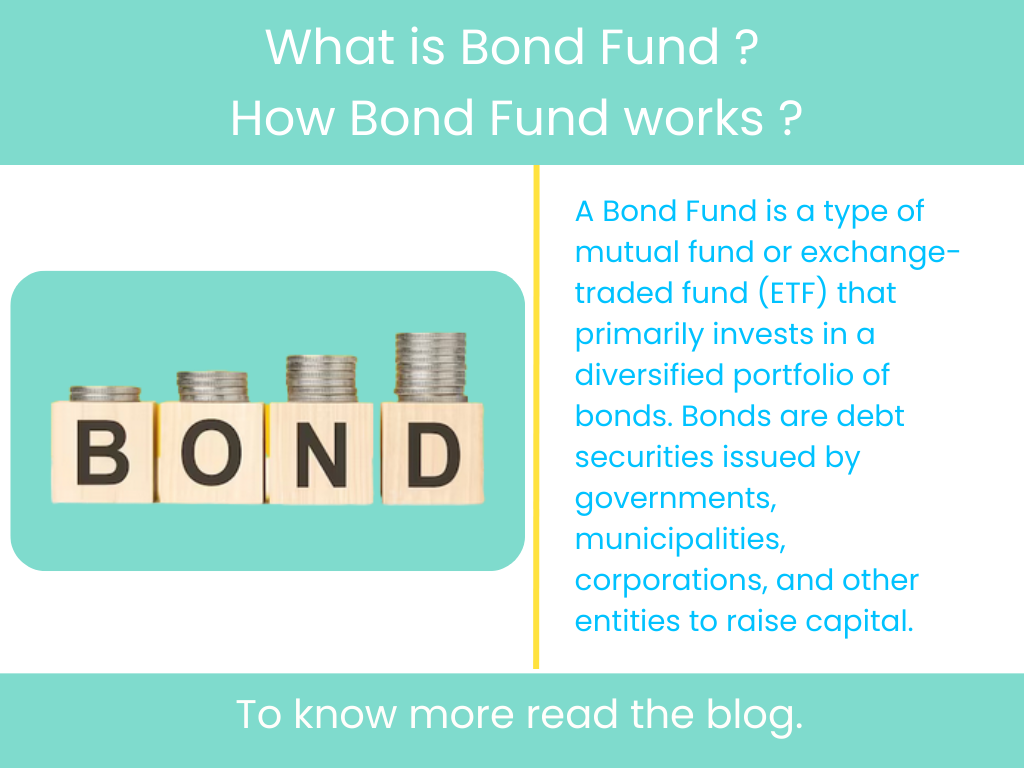What is Bond Fund ? How Bond Fund works ?
A Bond Fund is a type of mutual fund or exchange-traded fund (ETF) that primarily invests in a diversified portfolio of bonds. Bonds are debt securities issued by governments, municipalities, corporations, and other entities to raise capital. Bond Funds provide investors with exposure to a variety of bonds, allowing them to diversify their fixed income investments.
Here's how a typical Bond Fund works:
Portfolio Construction: The fund manager selects a mix of bonds to create a diversified portfolio. The bonds may vary in terms of issuer, maturity, credit quality, and coupon rates. The manager aims to achieve a balance between income generation and risk management.
Bond Selection: The fund manager conducts research and analysis to identify bonds that align with the fund's investment objectives. Factors considered include credit quality, interest rate risk, yield, duration, and the issuer's financial health. The fund may invest in government bonds, corporate bonds, municipal bonds, mortgage-backed securities, or other types of bonds.
Income Generation: Bonds pay periodic interest payments to bondholders, typically in the form of coupon payments. The Bond Fund collects these interest payments from the underlying bonds in its portfolio. The income generated from the bond holdings is then distributed to the fund's investors, typically on a regular basis.
Reinvestment or Payout: The Bond Fund has the option to reinvest the interest income back into the fund by purchasing additional bonds or distribute the income to the investors. The reinvestment or payout decision is usually made by the fund manager and stated in the fund's prospectus.
Total Return: In addition to the interest income, the performance of the Bond Fund is also influenced by the changes in the market value of the underlying bonds. If interest rates decrease, the value of existing bonds generally increases, leading to capital appreciation. Conversely, if interest rates rise, the value of existing bonds tends to decrease, resulting in capital depreciation. The fund's total return reflects both the income generated and any capital gains or losses.
Investors choose Bond Funds as a way to generate income, preserve capital, and diversify their investment portfolios. Bond Funds can offer different levels of risk and return based on the types of bonds they invest in. It's important for investors to assess their risk tolerance, investment goals, and time horizon before investing in a Bond Fund. Additionally, investors should carefully review the fund's investment strategy, credit quality of the bond holdings, expenses, and the track record of the fund manager.


